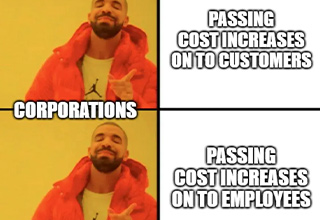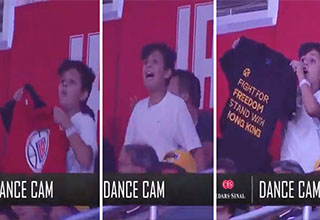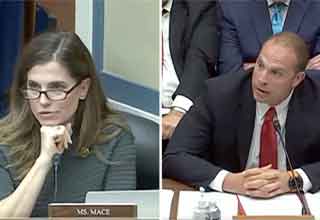Don't Record the Cops
Anthony Graber is facing felony charges today. His crime? Recording a traffic stop with a video camera - supposedly prohibited in Maryland under an archaic "anti-wiretapping" statute that is well past due for a revisit by the General Assembly.
Mr. Graber was riding his motorcycle on I-95 in Maryland, speeding and popping wheelies and recording the experience with a helmet cam. An unmarked car cut him off as he slowed for traffic, and a man in a sweatshirt and jeans jumped out with a gun in his hand. Five seconds after the armed man exited his vehicle and approached Mr. Graber, he identified himself as a Maryland state trooper. But for the first four seconds of the encounter, it looks like a carjacking. Mr. Graber accepted a speeding ticket.
That was the end of the story until Mr. Graber posted video of the encounter on YouTube. Then six state troopers showed up with a search warrant, seized two computers, two laptops, and a camera. The officers served the warrant at 6:45 a.m. on a weekday, detaining Mr. Grabers's family for 90 minutes and forbidding his mother from leaving for work and his younger sister from going to school until the search was complete. Mr. Graber says he was shown a copy of a search warrant with a judge's signature on it but was only allowed to keep an unsigned copy - because the judge's identity is being kept secret.
Mr. Graber, who serves in the Air National Guard, was detained for 26 hours in the Baltimore County jail before seeing a judge to set his bond.
How is this possible? Because the Maryland wiretapping statute makes it a crime to record any conversation without the consent of all parties - a "unanimous consent" law. Maryland is one of a dozen states with such a statute; most jurisdictions are less strict. The penalty can be up to five years in prison and up to a $10,000 fine. When the prosecutor asked for a $15,000 bond for a $10,000 crime, the judge questioned both this maneuver and the use of the law against Mr. Graber.
The judge was right to ask how Mr. Graber came into custody. Maryland courts have consistently held that where there is no reasonable expectation of privacy, there is no violation of the wiretapping law. An assistant attorney general confirmed this reading of the law in a letter to the state legislature last year. Mr. Graber's conversation with the officer giving him a speeding ticket, on a public highway and observed by hundreds of motorists, could not have been in a more public setting. It seems certain that even if Mr. Graber is convicted he will win on appeal and have the verdict thrown out because of the state's overbroad reading of the wiretapping statute.
The deterrent to recording police is still established, however. Mr. Graber faces long hours and thousands of dollars in attorney's fees. Even in he sues the police for violating his civil rights and wins monetary deamges, he has been put through the wringer enough to make citizens pause before pushing the record button. In short, you may beat the rap, but you won't beat the ride - the ride to station house and into court.
This boils down to "contempt of cop," as it is known in civil liberties circles. The police are, in effect, telling Mr. Graber and anyone else who might record police activity in Maryland that they have little interest in police transparency and accountability.
This comes at a time when four Prince George's County officers have been relieved of duty and face both county and federal investigations for beating a University of Maryland student during a post-basketball victory celebration. Video of the beating made all the difference in that case. But if if had caught any conversation between the officers and the student, prosecutors could have treated it as a felony instead of what it was: a necessary bit of transparency in policing.
The Maryland wiretapping law is itching for an update. The police work for the citizens of Maryland, and there is no reasonable argument that the citizens are not owed a transparent accounting of police actions funded by their tax dollars and potentially infringing on their liberties. Prosecuting those who capture police misconduct on tape thwarts the rule of law and makes civil servants into bullies. The legislature should amend the law and let Maryland law enforcement officers know that if they're doing good police work, they should not be worried about getting caught on tape.






8 Comments